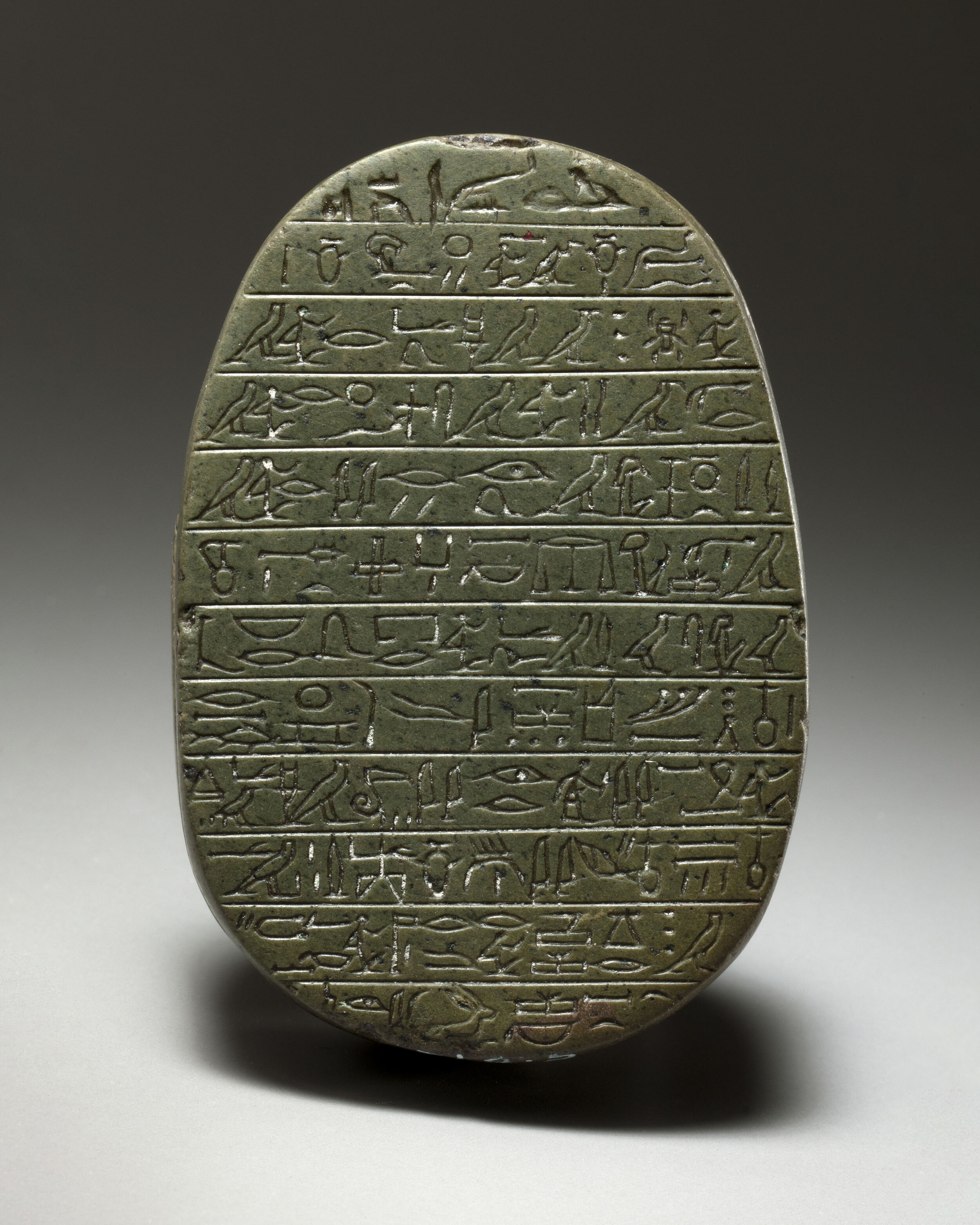Ancient Egyptian Faience Baboon grasping two facing Rams





Ancient Egyptian Faience Baboon grasping two facing Rams
Egyptian, ca. 600 - 550 B.C.
Faience
H: 6.2 cm
PROVENANCE: François de Ricqlès, Vente Hotel Drouot, Archéologie, December 5, 1994, lot 147
SERIAL NO: 1430
This beautiful faience jar is both ornamental and practical, a wonderful example of an Egyptian vessel. In the shape of baboon grasping two facing rams (one by the horns, the other by its body). The jar is an ivory colored faience, with details (the horns, hoofs, tails of the rams, and the ears of the baboon) in brown. On the top of the baboon’s head is a small hole which would have allowed the owner to access the contents of the jar. Both the ram and the baboon are frequent subjects in Egyptian art. Their popularity stems from their religious importance to the Egyptians. The baboon was associated with Thoth, the god of all intellectual pursuits in the Egyptian pantheon. The ram, a symbol of fertility throughout Egyptian art, was associated with a number of Egyptian deities Banebdjed and Osiris. The vessel is a kohl jar; a receptacle used in ancient Egypt to store and dispense kohl, a dark substance used to darken the eyelids. In addition to its cosmetic purposes, kohl was believed to have medical properties, to cure and prevent eye diseases.







